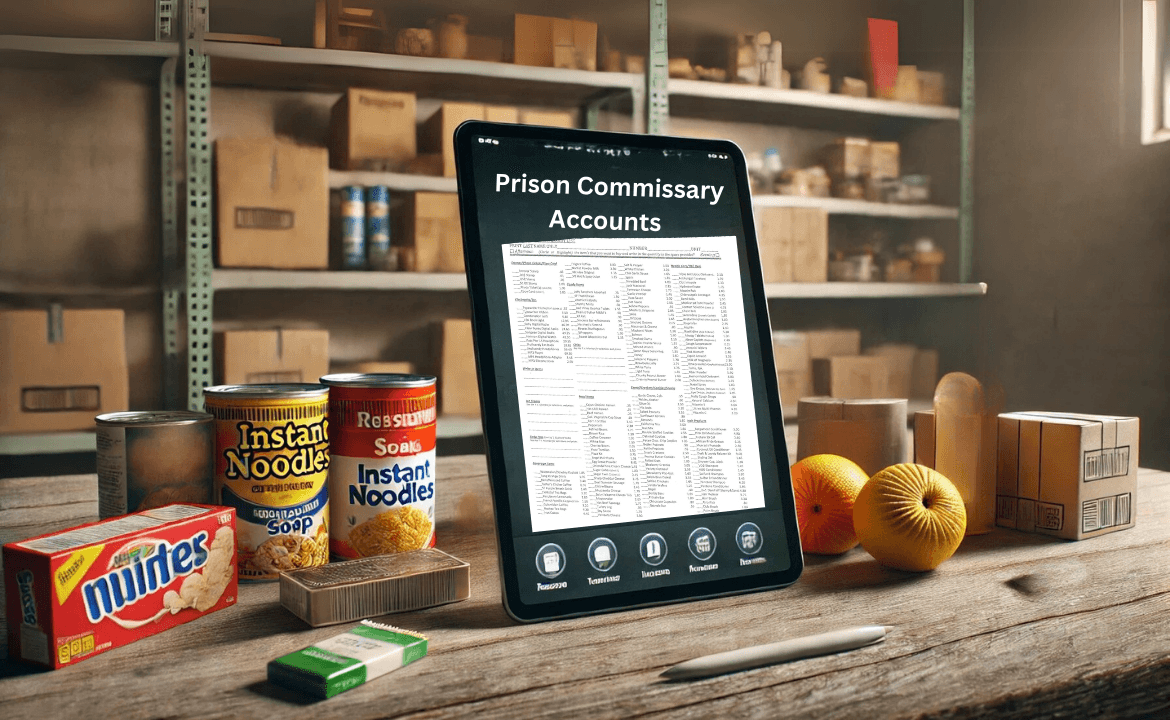Each state’s criminal justice system consists of legislative bodies that enact criminal laws and policing agencies that enforce them.
The same is true for the federal criminal justice system.
Federal and State Criminal Justice System Similarities
Each state and the federal government have robust law enforcement agencies that include highly trained police officers and law enforcement officers. These state and federal enforcement agencies are integral to the modern criminal justice system, ensuring laws are enforced fairly and effectively nationwide.
Federal Department of Justice
The criminal justice system consists of both state and federal levels. At the federal level, the Department of Justice oversees a complex enforcement system where crimes and criminal behavior involving federal statutes are prosecuted.
In the federal justice system, legal proceedings can begin with the accused accepting a plea deal by pleading guilty to some or all the charges or to keep fighting the charges to receive a better plea offer later.
The truth is that only a small percentage of federal arrests go to trial. According to Pew Research, only 2% of federal criminal defendants went to trial, and of those who did, fewer than 1% won their cases.
Federal Jurisdiction
Crimes with a national impact are enforced and tried at the federal level. This means the federal justice system has jurisdiction over crimes involving federal statutes and crimes committed across state lines.
Federal Crimes
While most crimes are prosecuted at the state and local level, federal crimes often involve more serious offenses that cross state lines or have national implications.
Some of the most charged federal crimes include:
- Firearm Violations
- Federal White Collar Crime
- Fraud and Embezzlement
- Criminal Deportation
- Identity Theft and Credit Card Fraud
- Hate Crimes
- Drug Manufacturing
- Drug Trafficking
- Child Pornography
Federal Grand Jury
At the federal level, a grand jury is often convened to decide if sufficient evidence exists to charge an individual with violating federal law, including severe crimes that cross state borders.
Showcasing the important role that the federal government has in regulating severe offenses that cross state boundaries.
The federal criminal system’s role also underscores the coordinated and collaborative effort between different branches of law enforcement and the judicial system in tackling complex legal challenges.
State And Local Crimes
Most crime enforcement rests with state and local governments. State municipalities and counties mainly perform local and countywide police protection and enforcement of their criminal laws.
Jails and state prisons are primarily a function of state governments. In most cases, local crimes are managed by the states, counties, and local municipalities.
Six Major State Crime Categories
Most state crimes, whether misdemeanor or felony, fall into one of six criminal categories and include:
- Crimes against persons and property
- Theft and fraud crimes
- Sex crimes
- Juvenile crimes
- Drug crimes
- Impaired driving crimes
The Criminal Charging Process
Arrest
After the arrest of a suspect, law enforcement presents its findings to the prosecutor. The prosecutor determines whether criminal charges should be filed and the specific charges.
Factors Considered in Charging Decisions
- The strength and legality of the evidence
- The gravity and harshness of the alleged crime
- The circumstances and credibility of the witnesses
- The defendant’s criminal history
- The likelihood of a conviction
If charges are filed, the defendant is formally notified, often through the arraignment process, where they are informed of the charges against them and asked to enter a plea of guilty or not guilty.
Initial Court Appearance – Arraignment
The arrested person must be taken before a judge or magistrate without unreasonable delay. At the initial appearance, called an arraignment, the judge informs the accused of the charges and determines if sufficient cause exists to hold the accused.
Right To Counsel
All defendants facing crimes for which imprisonment is possible have the right to be represented by a criminal defense attorney. If the court determines the suspect cannot afford an attorney, the state will assign one to the defendant as part of the accused’s criminal rights. These lawyers are called public defenders.
Pretrial Detention and Release
The court often bases its pretrial detention decision on information about the defendant’s criminal and personal history, drug use, residence, employment, and family-community ties.
The court may release the accused on their own recognizance (OR) without the need to post bail.
Posting Bail
In more violent and severe cases, usually felonies, a pretrial release is generally conditioned on the accused posting bail. Bail is intended to ensure the accused will appear for all further court proceedings as required by the court.
However, many jurisdictions can deny bail and impose pretrial detention in severe offenses where the accused is deemed dangerous to the community and poses a flight risk.
Failure To Appear
If the accused fails to appear in court or skips bail, the court will issue an arrest warrant, and the bail agent may retain the services of a licensed bounty hunter to locate and recapture the accused.
Preliminary Hearing
In many state jurisdictions, when a crime is charged as a felony, the initial court appearance may be followed by a preliminary hearing. This is also known as a probable cause hearing, and in some states and almost all federal courts, a grand jury makes this threshold decision.
The chief purpose of the preliminary hearing is to judicially determine whether there is sufficient evidence of probable cause to believe the accused committed the crime.
If the judge does not find probable cause, the case must be dismissed, which is extremely rare. However, this does not preclude the case from being refiled should the prosecutor obtain additional evidence.
In most cases, the judge finds probable cause, and the case will be bound over for a felony trial.
Diversion – Suspended Sentence
In some states, defendants without a prior criminal record may be eligible for a diversion program that allows the accused to avoid prosecution so long as they complete specific conditions such as drug treatment or attend anger management classes.
Successful completion of diversion usually results in the dropping of charges or the expungement of the criminal record if the defendant was first required to plead guilty before receiving diversion.
Trial by Judge or Jury
Choice Belongs to Accused
Under the U.S. Constitution, a person accused of a crime is guaranteed a public trial by jury. Sometimes, the accused may ask for a court trial, also known as a bench trial.
A bench trial means the judge renders the verdict rather than a jury. A court trial requires the judge to be the sole trier of both the facts and the law.
The Criminal Trial
Criminal courts play a critical role in both state and federal frameworks. They are the backbone of the criminal justice system. Law enforcement efforts culminate in trials or plea bargains, guided by a stringent legal process designed to uphold justice.
At a criminal trial, the prosecution and defense counsel present their evidence through lay and expert witness testimony, documents, and all forms of physical evidence.
Whether evidence is admitted is an exclusive role of the judge.
The judge’s role is to rule on all contested issues of law, including whether certain forms of evidence will be admitted into evidence.
Rules of Evidence
The court’s rulings must follow the formal rules of evidence and supporting case law.
Examples of evidentiary rules include:
- Rules prohibiting hearsay unless it falls within an established exception
- Rules governing relevancy
- Rules governing admission of evidence
- Rules governing authenticity and trustworthiness of evidence
- Rules governing expert witness testimony
Exclusion of Evidence on Constitutional Grounds
Exclusionary Rules
In criminal trials, evidence must be excluded if it is determined to have been obtained in violation of the defendant’s constitutional rights—specifically, evidence obtained from unlawful police searches and seizures, interrogations, and arrests.
Miranda violations are among the most common Fifth Amendment violations.
The exclusionary rule is based on our Fourth and Fifth Amendment rights against illegally obtained evidence and the fruits derived from such evidence – also known as the fruit of the poisonous tree doctrine.
Possible Criminal Verdicts
The trial usually results in an acquittal or conviction on the charges. Still, if the jury is deadlocked and cannot reach a verdict, it could end in a mistrial.
Post-Conviction Sentencing
After a conviction, a sentence is imposed. Under the federal system, the district court is free to base the terms of the sentence on the federal sentencing guidelines.
Aggravating and Mitigating Circumstances Considered
Upon arrival at an appropriate sentence, a sentencing hearing may be held at which evidence of aggravating or mitigating circumstances is considered.
For example, on the issue of whether a homicide is charged as murder or manslaughter, was there evidence that the offense was committed in the heat of passion, or was it carefully planned, deliberate, and premeditated, demonstrating the defendant’s evil intent or what the law refers to as malice.
Finally, the court will consider the offender’s criminal history, work history, and family relationships.
Probation Department Report
In making such a determination, the courts often rely on the probation agency’s pre-sentence investigations and will consider their recommendations in sentencing. Courts may also consider victim impact statements.
Probation Granted as Part of the Sentence
At sentencing, a judge may grant probation rather than impose a jail sentence. Probation is ordered if the seriousness of the crime suggests that the offender is not a threat to society and that incarceration within the prison system would be inappropriate under the circumstances.
Probation and parole allow offenders to avoid prison or be released from prison after serving only a part of their sentence.
The goal of probation and parole officers is to help guide the offender back into society.
Other forms of sentencing include incarceration in a prison, jail, or other detainment facilities. Probation allows a convicted person to be released but is still subject to certain conditions, such as mandatory drug testing, drug treatment, fines, and payment of victim restitution.
Post-Conviction Appeal
After the trial, a defendant may request an appellate review of the conviction or sentence based on an error of law at the trial court level.
In death penalty cases, appeals are automatic.
Appeals may be subject to the appellate court’s discretion and may only be granted upon acceptance of a defendant’s petition for review,
Alternatives To Incarceration
Some offenders may qualify for alternatives to incarceration, such as community service, regular drug treatment sessions, unannounced testing, house arrest, and ankle bracelet electronic monitoring.
Sometimes, the law mandates that persons convicted of certain offenses serve a term of mandatory incarceration. Most states permit the court to set the sentence length within certain limits, but some state sentencing laws mandate a fixed prison term to be served, which a parole board cannot alter.
An Executive Pardon can terminate imprisonment by either the Governor at the state level or the President at the federal level. Pardons are rarely granted.
Correctional Facilities – State and Federal Prisons
The term “Correctional Facilities” refers to the government and private supervision and management of persons arrested, convicted, and sentenced for criminal offenses.
There is a state and federal prison system.
The United States incarcerates over 25% of the world’s total prison population. The United States incarcerates more people than any other nation.
In 2020, the U.S. prison population totaled 2.1 million people.
Individual and Social Impact of Prison
When most people think of prison, they picture horrible people dressed in orange clothes locked behind steel bars. What they don’t always think about is how often these offenders were themselves victims of violent crime and dysfunctional families.
There are also other victims, like the family left behind for every prisoner behind bars – the prisoner’s parents, spouse, and children. Sometimes, an entire family is left to cope with unpaid bills and the emotional turmoil, such as severe depression and feelings of hopelessness that will undoubtedly follow.
Consider how those convicted and sentenced to prison prepare themselves for entry into the prison system.
Watch Criminal Defense Attorneys at the Rossen Law Firm Discuss the Federal Justice System:
Misconceptions About Our Criminal Justice System
Misconception: The legal principle of “innocent until proven guilty” is the bedrock of our criminal justice system and ensures that criminal defendants will be protected against prejudice and bias.
Reality: While this principle is a beloved goal of the U.S. legal system, in practice, it can be undermined by factors such as pretrial detention, public perception shaped by far-right media coverage, and biases within the system. Also, those who cannot afford to retain a private criminal defense attorney are often deprived of effective counsel.
Misconception: Plea bargains are a fast and easy way of disposing of cases, letting those accused of crimes off the hook.
Reality: Plea bargains can pressure individuals in questionable cases to plead guilty to lesser charges out of fear of receiving a harsher sentence if convicted at trial. The problem is that the pressure to plea bargain undermines the right to a fair trial and can result in wrongful convictions. In fact, Pew Research has found that the number of federal criminal defendants opting for a trial has fallen by 60% in just two decades.
Misconception: Our criminal justice system is impartial and committed to treating everyone equally, regardless of race and economic status.
Reality: Studies consistently show that systemic biases exist within the criminal justice system, affecting minorities disproportionately. Issues such as racial profiling, sentencing disparities, and differential treatment happen much more frequently than people think.
Misconception: Many assume that being tried by a jury of one’s peers will consistently deliver fair and just verdicts.
Reality: Jury decisions have been found to be influenced by various factors, including personal biases, misunderstanding of legal instructions, and the persuasive power of attorneys. This can sometimes result in unjust verdicts, both in cases of convictions and acquittals.
Misconception: If an appellate court disagrees with the trial court’s rulings, they will automatically overturn the conviction and correct any errors.
Reality: Appellate courts will often defer to trial courts’ decisions, particularly regarding factual findings and the credibility of trial witnesses. This deference is intended to respect the trial court’s role as the primary fact-finder. However, it can also make it more difficult for defendants to obtain relief on appeal, even if the appellate court has doubts about the conviction.
Law Enforcement and Cross-Agency Collaboration
In the criminal justice system, state law enforcement, including local police agencies, works in tandem with the Federal Bureau of Investigation. Together, they work to deter crime and keep us safe.
At the same time, units like the Drug Enforcement Agency focus on enforcing drug laws and providing treatment for drug offenses. This teamwork between police departments and the courts shows a strong effort to keep order and deliver justice efficiently in different areas.
In our criminal courts, the accused has the constitutional right to plead guilty or not guilty and thereby have their day in court.
Bottom Line
The state and federal criminal justice systems are composed of autonomous governmental organizations whose collective and primary goal is to enforce the law while upholding the constitutional principles of due process and the individual rights of those accused.
However, the criminal justice system is not without its challenges and controversies.
While the system is designed to ensure that individuals are treated fairly and that the constitutional principles of equal justice under the law are served, the reality is often quite different.
One of the most significant challenges facing the system is bias and prejudice. In addition, the system’s reliance on plea bargains can pressure individuals to plead guilty to lesser charges out of fear of receiving a harsher sentence if convicted at trial.
Finally, as you shall see in our sections on prison systems, the government’s focus on punishment rather than rehabilitation has led to mass prison populations that have contributed to significant social and economic problems, not only for the individuals incarcerated but also for their families and communities.
Sources and References
Federal Practice- Criminal Procedure
Spodek Law Group – What are the most common federal crimes charged? 2024




























